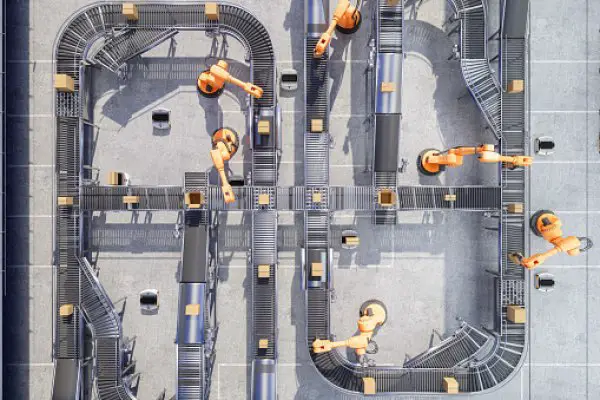Far from being a technophobe, Elon Musk has raised the alarm regarding the potential for artificial intelligence to cause catastrophic damage. With an anxiety that AI would fundamentally alter life on Earth as we know it, Musk joined other thought leaders in technology in requesting 6 months of abstention from developing new AI programs.
It is not a novel concept that machines are on their way and could harm us. Those with techno-optimistic views are apt to note that Luddites expressed similar apprehensions during the early 1800s. ChatGPT, then, embodies this fourth industrial revolution – just as the spinning jenny was representative of the first industrial revolution. This chatbot symbolizes the beginning of a new age.
Previously, a tendency for events to occur in succession has been observed. The advent of new technology has created the possibility of completing tasks more rapidly and effectively. Anxiety was sparked as machines threatened to usurp roles traditionally filled by humans, yet ultimately it became evident that pessimism was unwarranted; instead, the new technology has caused an increase in employment opportunities.
Artificial Intelligence (AI) will be a revolutionary force that can break the weak output trend, and sluggish expansion experienced in Western economies since the global financial crisis 15 years ago. Just like when tractors supplanted manual laborers, one machine can carry out what many people used to do; this is not up for debate.
The potential impact of a productivity boost is uncertain. Will only a few tech giants reap the rewards, or will history repeat and AI create more jobs than it destroys? And if so, will these new positions offer the same level of remuneration as before? It is possible that this time things could turn out differently.
The effects of AI on the job market have been widely discussed. Many studies have attempted to identify how many jobs may be impacted, with some estimates suggesting that millions worldwide could be affected. While it is difficult to know what will happen, some predictions can be made with a reasonable level of certainty.
Technological development seems to be increasing at an ever-faster rate, highlighted by the release of ChatGPT in November 2020 and its subsequent version launched just a few months later. Elon Musk’s call for a 6-month moratorium on AI technology must be seen within the context of the US-China rivalry.
It is highly unlikely that the United States or China would be willing to grant the other a chance to take the lead. Consequently, it appears improbable that both nations will come together and reach an accord to pause their competition mutually.
Despite the rapid pace of technological development, economies will not experience immediate drastic changes. Machines are costly, and labor is less so; businesses have also invested heavily in their current operations, thus making it a period before AI’s effects on investments, employment, and productivity are seen.
Once the transformation happens, it will likely have a major effect, as numerous middle-class, white-collar jobs are in danger. This will contrast with what happened in the past when technological developments enabled those laid off from lower-paying jobs to secure higher-paid positions in newly developed roles. For example, employees who were no longer necessary on farms got to work at industrial sites.
Moravec’s paradox is a major challenge for this model because robots struggle with difficult issues more easily but struggle with simpler ones. For example, machines can easily outplay human chess players but encounter difficulty when it comes to collecting and cleaning up the pieces after the game, tasks that humans have developed over countless years of evolution.
The jobs most vulnerable to AI are usually higher-paying than those created, as positions that necessitate empathy and basic motor skills, such as social care work, tend to pay poorly. The usage of AI will likely increase productivity and economic growth. However, the benefits will be largely concentrated at present.
Policymakers must act quickly to address the obvious problems at hand. While AI can offer tremendous advantages, it also carries potential risks that are not only financial but extends into areas of security and ethics. Therefore, a swift response is essential.
Launching the government’s white paper last week, the science and technology secretary Michelle Donelan said she wanted AI to be used to make the UK the
Michelle Donelan says:
“Smarter, healthier and happier place to live and work”.
It appears to be a delightful idea, reminiscent of an essay John Maynard Keynes authored in 1930 that anticipated people would be able to work only 15 hours each week due to enhanced wealth within the following 100 years.
Keynes’ dream has yet to come true, and neither will Donelan’s unless something is done about the three most critical aspects of AI: establishing a worldwide system of regulations that establishes shared standards for how AI is utilized and developed, training workers so they can adjust to changing times; and distributing the economic advantages equitably. As with climate change, another great danger facing us today, time is running out.
As Larry Elliott points out, AI has the potential to transform the way we work, learn, and interact with the world around us. However, it is important to consider who will benefit from these advances. While AI has the potential to create new jobs and opportunities, there are also concerns about the impact on employment and income inequality. Policymakers must prioritize investments in education and training to ensure workers have the skills to thrive in an AI-driven economy.
Additionally, measures should be taken to ensure that the benefits of AI are shared fairly across society. This may involve policies such as universal basic income or tax reforms that ensure AI gains are distributed more equitably. By taking a proactive approach to these challenges, we can ensure that AI technology brings about positive benefits for all members of society, not just a select few.
Source: the Guardian



